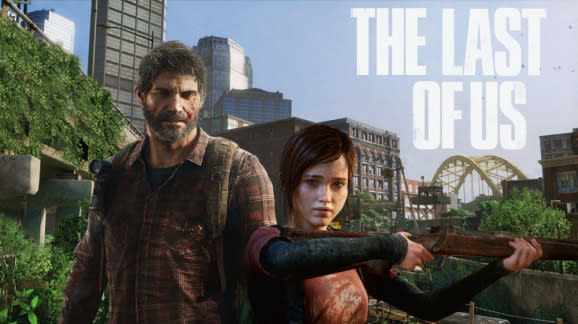The positive influence of LGBT video game characters

GUEST:
Gaming execs: Join 180 select leaders from King, Glu, Rovio, Unity, Facebook, and more to plan your path to global domination in 2015. GamesBeat Summit is invite-only -- apply here. Ticket prices increase on April 3rd!
The impact video games have had on our culture and society in the past few decades is staggering, and has it long left behind the image of being solely the pastime of teenage boys. Back in 2014, 47 percent of gamers were women and 29 percent of gamers were over the age of 50. For the past few years, video game sales (and audiences) have dwarfed Hollywood, with games sales reaching a staggering $24 billion compared to just $10 billion that movies have raked in from the box office.
Video games are a big business, and they are reaching an ever larger and diverse audience. The often complex and story-rich plots in video games enable developers to craft intricate characters, scenarios, and worlds for the characters to develop in. Game developers have a history of creating LGBT characters in their games; for example, in 1989 Capcom released Final Fight, featuring an antagonist known as Poison (she has since appeared in numerous other Capcom titles, most recently as a playable character in Ultra Street Fighter in 2014) and depending on the games region is either a crossdresser or transgender.
In 2003, the highly rated Star Wars video game Knights of the Old Republic featured Juhani, the first lesbian character in the Star Wars universe. Players chose the gender of their character they controlled (and you could choose your story path, following the light side of the Force or eventually falling to the dark side) and even form relationships with various characters, and in Juhani’s case, a lesbian relationship.
The incredibly successful The Last of Us (from Naughty Dog) tells the story of a Cordyceps fungus that has adapted itself to infect humans, bringing apocalyptic-like conditions for the uninfected survivors. Throughout the game, you control either Joel (in his late 40s) or Ellie (14), and as the game progresses (told in the prequel story, Left Behind) you learn Ellie is a lesbian who had a relationship with another character, Riley. As the game unfolds, you’ll also meet Bill, a very rough and tough gay male (and is old friends with Joel, who is straight) who aids the player.
In January, Dragon Age: Inquisition won developer BioWare the Special Recognition GLAAD media award, because of its excellent representation of the LGBT community due to its characters and storytelling. The press release from GLADD read, “The [games] many complex and unique LGBT characters prominently integrated throughout the game.” Gamers especially loved Iron Bull (a huge, brutish male warrior who is bisexual and voiced by Freddie Prinze, Jr.) or Sera, a lesbian assassin.
The real beauty of these games (along with dozens of others) comes from the characters; they aren’t perfect — they’re flawed and “human.” Each contends with their own struggles, their own desires, their own motivations and backstory. For instance, Ellie is immune to the infection, and she’s trying to save herself and those she loves by reaching medical teams to find a cure. Iron Bull is fiercely loyal to his clan and the player’s party.
With such excellent characters popping up in games that are selling millions of copies (Last of Us has sold over seven million copies at last count, early last year), those characters become loved by everyone. They’ve played them, they’ve watched their story progress, and players begin to understand their plights. It helps to portray the LGBT community in a strong and positive light and help more people understand and accept it.
Dusty Everyman, the writer behind Electronic Art’s Mass Effect 3 (which is set in the future), said “I believe that by the 22nd century, declaring your gender preference will be about as profound as saying ‘I like blondes’ – it will just be an accepted part of who we are.”
David Silver is a writer for Pride Life, a large magazine focusing on gay issues and opinions.

